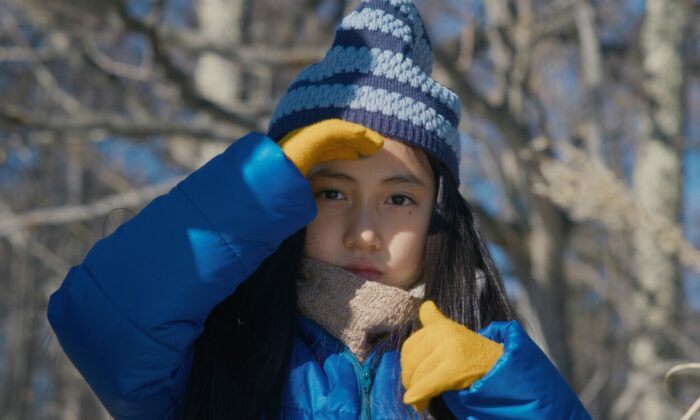There is nothing evil in nature, for evil is all that is not natural. Evil Does Not Exist acts as an interrogation of this statement, exploring the relationships between humans and nature and equally, between urban and rural communities, their differing priorities and perspectives, and demonstrating the holistic nature of the global community. That it achieves such weighty aims with such simple, tactful and temperate methods is its own wondrous accomplishment.
Evil Does Not Exist is the latest work from one of Japan’s most acclaimed international directors. In Ryusuke Hamaguchi is best known as the director of the celebrated Haruki Murakami Drive My Car, which, in one of those unexpected “Ws” the Academy occasionally pulls to cling onto its credibility, was the recipient of a Best Picture nomination. I was lucky enough to see Drive My Car before it became one of the most acclaimed films of the decade, however, as I said at the time, I was more enamored by Hamaguchi’s other 2021 release, Wheel of Fortune and Fantasy, a more dynamic and surprising work that flew under the radar despite being in my opinion, not only the better but also the more accessible film of the two. Neither of those films much prepared me for Evil Does Not Exist though, as it’s an altogether different sort of film, and one I’m having a hard time pigeonholing, which is always a high compliment from me!

The film, slowly and sensitively, explores the tensions that arise between the residents of a small mountain village and the developers who have announced their intentions to establish a “glamping” site in the woods atop their community, a project witheringly described by one of the locals as a “camping themed hotel”. The villagers are all concerned about the environmental impact, particularly on the local water table, and the runoff into the natural mountain spring on which they all depend, something to which the developers clearly hadn’t given a moment’s thought. As well as the developers (Ryuji Kosaka and Ayaka Shibutani), the Evil Does Not Exist focuses primarily on Takumi (Hitoshi Omika), a reclusive widower who lives with his nine year old daughter Hana (Ryo Nishikawa). Takumi loves and respects the natural world, and despite his propensity for daydreaming, is respected by the locals for his knowledge and finds himself their unwilling and unlikely spokesperson as well as host to the fact-finders from the city.
As the title implies though, Evil Does Not Exist is unwilling to paint one side as purely villainous. No, there’s no “both sides-ing” here, the developers are clearly ignorant of the deleterious effects their actions will have on the small mountain town, and they are acting on behalf of paymasters who do not care what those effects might be. Briefing the locals on their plans is pure lip service as far as the execs are concerned and the decision-makers have no plans to act on their concerns, but their spokespeople do actually sympathize with the villagers and are embarrassed and surprised to encounter such push-back to their gentrification plans.
Through deft humor and sincere pathos, we are allowed to explore each characters motivations and personalities and we see that no, these developers aren’t evil, they’re just the proverbial “morons in a hurry”. They’re hoping to offer their customers a “return to nature” experience and soon find themselves seduced by the mountain’s serenity and Takumi’s oneness with nature, but the balance of nature is being disrupted, and tragedy can only ensue. This isn’t a Local Hero type situation, we’re in a more unforgiving, thorny and unpredictable world here. Chekov’s Uncle Vanya featured prominently in Drive My Car, and Hamaguchi knows how to employ a “Chekov’s Gun” himself. The film ultimately reaches a zenith of magic realism that is so eerie, and so unexpectedly and beautifully abstract that it makes for one of the most haunting and surprising endings of any film this year.
Whether they are as verbose as Wheel of Fortune and Fantasy, or as laconic as Evil Does Not Exist, all of Hamaguchi’s films give the impression of being extremely precise in their language, not a word feels accidental, which makes it all the more impressive how improvisational and spontaneous much of the dialogue still feels. The dialogue in Evil Does Not Exist is both extremely revealing, and very convincing and realistic. Coupled with the film’s long passages of silence, the occasional abrupt transitions into and out of Eiko Ishibashi’s score, and the gentle, pastoral approach of the pacing and camerawork, positions Evil Does Not Exist such that it’s closest relative may be found in the oeuvre of a Kelly Reichardt. Slow, contemplative, exacting, humorous and deeply, richly humane and confounding. It may seem unnecessarily languid at first, but its gentle rhythms are essential to its affect, and a profoundly rewarding one it is too.



